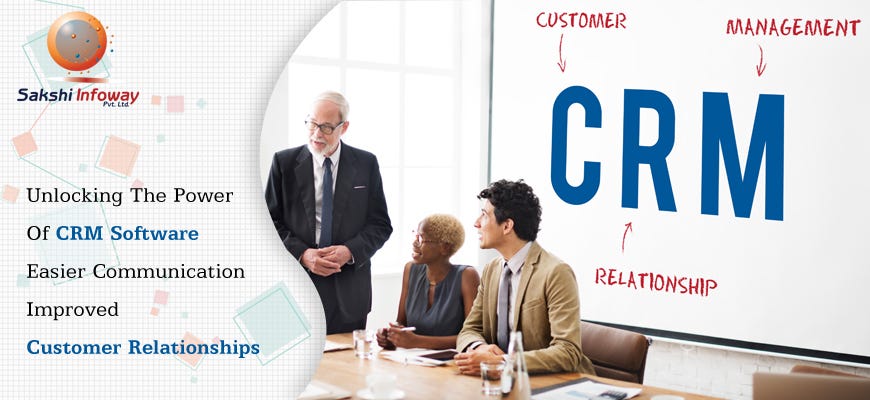CRM software organizes and manages customer data, streamlining sales and enhancing customer relationships. CRM software is a powerful tool that helps businesses manage and maintain strong customer relationships.
By organizing and centralizing customer data, it provides a comprehensive view of each customer, allowing businesses to understand their needs and preferences better. This software streamlines sales processes, enabling sales teams to track leads, manage pipelines, and close deals more efficiently.
It also facilitates effective customer communication, providing access to customer interactions and history, allowing businesses to provide personalized and timely support. Ultimately, CRM software enables businesses to enhance customer relationships, improve customer satisfaction, and drive growth.
Understanding CRM Software
CRM software, which stands for Customer Relationship Management software, is a powerful tool that helps businesses manage and optimize their customer relationships. It allows companies to keep track of customer interactions, store relevant customer information, and enhance overall customer satisfaction.
CRM software works by centralizing customer data and providing tools for businesses to manage customer interactions and relationships effectively. It allows companies to capture and store customer information, such as contact details, communication history, and purchase history. With this data, businesses can gain a comprehensive view of their customers and tailor their marketing, sales, and support efforts accordingly.
| Customer Data Management: | CRM software lets businesses store and organize customer information in a centralized database. |
| Lead Management: | CRM software helps track and manage leads, ensuring timely follow-ups and improved lead conversion. |
| Sales and Pipeline Management: | CRM software allows businesses to manage sales processes, track deals, and monitor sales pipelines. |
| Marketing Campaign Management: | CRM software facilitates planning, executing, and tracking marketing campaigns to target customers effectively. |
| Customer Support: | CRM software helps businesses provide better customer support by ensuring timely responses and issue resolution. |
Implementing CRM software can bring several benefits to your business, including:
- Improved customer relationships and satisfaction
- Streamlined sales and marketing processes
- Enhanced sales forecasting and pipeline management
- Better lead management and conversion
- Increased productivity and efficiency
- Centralized customer data for easy access and analysis
CRM software empowers businesses to build stronger customer relationships by:
- Providing a comprehensive view of customer interactions and preferences
- Enabling personalized marketing and communication
- Facilitating timely customer support and issue resolution
- Enhancing customer segmentation and targeting
- Improving customer satisfaction through better understanding and anticipation of their needs
CRM software streamlines sales and marketing processes by:
- Automating lead capture and nurturing
- Tracking and analyzing customer interactions throughout the sales funnel
- Providing data-driven insights for targeted marketing campaigns
- Improving collaboration between sales and marketing teams
- Streamlining sales pipeline management and forecasting

Credit: blog.sellyautomotive.com
Choosing The Right CRM Software For Your Business
Evaluating different CRM software options is an important step in choosing the right CRM software for your business. Consider factors such as functionality, ease of use, and cost when comparing the top CRM software providers in the market.
Customization and scalability are vital considerations when selecting CRM software solutions. Look for software that can be tailored to your specific business needs and has the flexibility to grow with your organization.
Integrating CRM software with your existing technology stack is another crucial factor. Ensure that the CRM software can seamlessly integrate with your current systems, such as your email marketing platform or project management tools.
By carefully evaluating these factors, you can identify the CRM software that best meets your business requirements, streamlining your customer relationships and enhancing your overall efficiency.
Implementing CRM Software In Your Organization
Implementing CRM software in your organization involves several essential steps. First, you need to create a CRM software implementation plan. This plan should outline the goals, objectives, and timeline for the implementation process.
Next, it’s crucial to train your team on effectively using the CRM software. This involves providing comprehensive training sessions and resources to ensure everyone understands how to utilize the software to its full potential.
During the implementation process, you may face challenges. It’s important to identify and address these challenges promptly. This could involve providing additional training, troubleshooting technical issues, or seeking external support.
Finally, it’s essential to measure the success of CRM software adoption. This can be done by tracking key performance indicators, such as increased customer satisfaction, improved sales productivity, and enhanced organisational communication.
Following these steps, you can successfully implement CRM software in your organization and reap its many benefits.
Read More:
Utilizing CRM software For Sales Optimization
CRM software is a powerful tool for sales optimization in businesses. It offers various functionalities that help enhance lead management and qualification. By utilizing CRM software, businesses can effectively track and analyze customer data to determine the quality of leads and prioritize follow-ups accordingly. Sales forecasting is also improved through the use of CRM software analytics, allowing businesses to make data-driven predictions and better allocate resources.
Another benefit of utilizing CRM software is the automation of the sales process. It streamlines tasks such as contact management, email communication, and pipeline tracking, saving valuable time and eliminating manual errors. CRM software also enables customer segmentation and targeting, allowing businesses to tailor their marketing messages and offerings based on specific customer groups.
Furthermore, CRM software enables businesses to track and analyze sales performance metrics. This provides valuable insights into the effectiveness of sales strategies, individual performance, and overall team performance. By leveraging these metrics, businesses can identify areas for improvement and make data-backed decisions to drive sales growth. With its diverse functionalities, CRM software plays a vital role in sales optimization and driving business success.
Leveraging CRM Software For Marketing Success
Leveraging CRM software can greatly contribute to marketing success. With CRM software, you can create targeted marketing campaigns that effectively reach your desired audience. By personalizing marketing communications based on CRM software data, you can connect with customers on a more meaningful level. This allows you to deliver relevant and tailored messages that resonate with their needs and preferences. Additionally, CRM software enables you to automate marketing workflows, streamlining processes and saving valuable time and resources. By automating tasks such as lead nurturing and follow-up communications, you can ensure consistent and timely interactions with prospects and customers. Another key benefit of CRM software is the ability to analyze customer behaviour and preferences. This valuable data helps you identify patterns, gain insights, and make data-driven marketing decisions. Lastly, integrating CRM software with marketing automation tools further enhances your marketing efforts. By combining the power of CRM and automation, you can optimize your marketing strategies and increase efficiency.
| Benefits of CRM Software in Marketing |
|---|
| Creating targeted marketing campaigns |
| Personalizing marketing communications with CRM software data |
| Automating marketing workflows with CRM software |
| Analyzing customer behavior and preferences with CRM software |
| Integrating CRM software with marketing automation tools |
Enhancing Customer Service With CRM Software
Enhancing customer service is a key objective for businesses today, and CRM software plays a crucial role in achieving this goal. By managing customer inquiries and support tickets, CRM software enables businesses to address customer concerns and provide effective solutions promptly. This software also facilitates personalized customer experiences by storing valuable customer data, allowing businesses to tailor their services to individual preferences. With CRM software, businesses can leverage customer feedback and surveys to gain insights and make informed decisions. Moreover, this software tracks customer interactions and history, ensuring a seamless and consistent customer experience. Lastly, CRM software streamlines customer service processes through the use of automated workflows, eliminating manual tasks and increasing efficiency. By implementing CRM software, businesses can effectively enhance their customer service efforts and boost customer satisfaction.
Ensuring Data Security And Compliance With CRM software
CRM software plays a crucial role in ensuring data security and compliance. By implementing security measures, CRM software helps businesses protect sensitive customer data. It not only helps in safeguarding customer information but also ensures compliance with data privacy regulations. CRM software also provides backup and disaster recovery strategies to mitigate the risk of data loss or system failures. Furthermore, it allows managing user permissions and access controls to prevent unauthorized access to sensitive data. To maintain effective data governance, businesses can follow the best practices recommended by CRM software. These include implementing data segmentation and classification, monitoring and auditing data access, and encrypting data in transit and at rest. With CRM software, businesses can confidently handle customer data while staying compliant with data privacy laws and maintaining the trust of their customers.
Maximizing The ROI of CRM Software
Boldly calculate and optimize the return on investment (ROI) of implementing CRM software for your business. Leverage powerful insights provided by CRM software to make informed business decisions. Continuously optimize the adoption and usage of CRM software to maximize its value. Track and measure the direct impact of CRM software on the growth of your business.
| Strategies for Maximizing Value: | Implement effective strategies to ensure the CRM software delivers maximum value to your business. |
| Leveraging Insights for Decision-Making: | Utilize CRM software insights to guide your decision-making process, enabling you to make data-driven and informed choices. |
| Optimizing Usage and Adoption: | Regularly assess and optimize the usage and adoption of CRM software by employees, ensuring its full potential is realized. |
| Tracking and Measuring Impact: | Implement systems to track and measure the impact of CRM software on various aspects of your business growth, such as revenue, customer satisfaction, and efficiency. |
Frequently Asked Questions For CRM Software What Does It Do?
What Is CRM Software And How Does It Help Businesses?
CRM software, or Customer Relationship Management software, helps businesses manage their customer relationships, improve customer service, and increase sales. It centralizes customer data, tracks interactions, and provides tools for analyzing customer behavior and creating targeted marketing campaigns.
What Are The Key Features Of CRM Software?
Key features of CRM software include contact management, lead and opportunity management, sales forecasting, customer segmentation, email marketing, social media integration, and reporting and analytics. These features help businesses streamline processes, improve productivity, and make data-driven decisions to drive growth.
How Does CRM Software Improve Customer Service?
CRM software improves customer service by providing a single source of customer data, enabling quick access to customer information, history, and preferences. It also automates and streamlines customer service processes, such as ticketing and follow-ups, ensuring timely and personalized responses to customer inquiries and issues.
Can CRM Software Integrate With Other Business Tools?
Yes, CRM software can integrate with other business tools like email marketing platforms, social media platforms, accounting software, and customer support systems. Integration allows for seamless data flow between systems, providing businesses with a holistic view of their operations and enabling better decision-making.
Conclusion
To sum up, CRM software streamlines and enhances customer relationships, making it an invaluable tool for businesses. From organizing customer data, automating tasks, to tracking interactions, CRM software empowers businesses to deliver personalized experiences and improve customer satisfaction. With its ability to generate insights and foster collaboration among teams, CRM software paves the way for better decision-making and increased productivity.
Ultimately, integrating CRM software is essential for businesses aiming to thrive in today’s competitive market.




